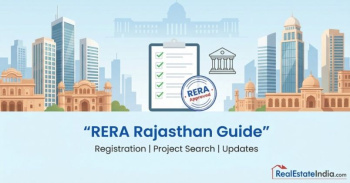
Khasra number is a Persian term that refers to a survey number. This survey number is allotted to a specific rural land of property in India. However, in the urban regions, land parcels are assigned to the survey numbers or plot numbers which is similar to that of the Khasra number.
Khasra Number: What is it and Does it Have any Differences with Khatauni?
These terms are common for property in India. This is because India’s land records were initially Mughal-organized, for revenue generation and tax levy. The land records are accompanied by Arabic and Persian origins. While a lot has been revolutionized since the Mughal era, the terms remain to be an essential aspect of the legal and the revenue system.
Khasra Number: Everything That is There to Know
As plot numbers are given to every land piece in the urban areas, a similar identification of number is allotted to the agricultural areas in the rural regions. The concerned authorities use the village map to allot a khasra number to every piece of land in that respective village.
Learn the Difference Between Khata and Khasra Number
The Khasra number is one of the details that are maintained under the rights records in various Indian states. It is famously coined as the Fard or Jamabandi. Besides the Khasra number, the RoR also possesses information on the cultivators, crops, mortgages, and owner. Khasa number is a Persian term which means a survey number or plot number that is assigned to a specific village land.
The Khasras offer minute details in regards to their regions and areas, types of soil, crops, cultivators, and owner details. Khasra is part of one more document known as Shajra, which has the village map. Khasra offers geographical details, and other contents like the total land area, kind of cultivated crops, the number of planted trees, and the quality of the soil. You can get full ownership of the pattern and the history of the piece of the land which dates back to 50 years, using the Khasra number.
The Khasra Number is Assigned by Whom?
Across all the Indian states, where the term-Khasra is well-known, the lekhpal is given the responsibility of arranging the documents for local land revenue. It is the village patwari who lends his hand to the lekhpal for the upkeep of the land revenue papers.
All the buyers must take into account that a khasra number which is part of the Sharja isn’t always the equivalent to a plot number. The khasra number will undergo a change only when a land parcel is gifted. Sold/divided and mutation happens post-transaction.
Khata Number: What is it?
A Khata number on the flip side is an account number that is assigned to a family that represents the entire landholding of the family members. The Khata number is also coined as the Khewat number and it offers you the in-depth on the total landholding and the owners. As per the state that you searching for the land record, you might require a Khata number or the Khewat number, for the document access.
Khewat Number: Know About It
The Khewat number is also known as the Khata number. It is the account number assigned to the landowners who own a land parcel jointly. The changes in Khewat number happens only with the ownership change.
Information Doled Out by Khatauni, Khasra and Khata Numbers
- The amount of agricultural land a village possess
- The number of people owning a specific land parcel in the village.
- If the owner is cultivating this specific land parcel.
- If the owner is not cultivating the specific land parcel, then how many more people are doing the needful?
- The amount of landholding every family possesses in the village.
- The share of the landholders in the land.
These were some of the crucial information that you must be aware of when planning to buy rural property in India. This essential information will help you find the best piece of land that you have been looking for.








ADD COMMENT